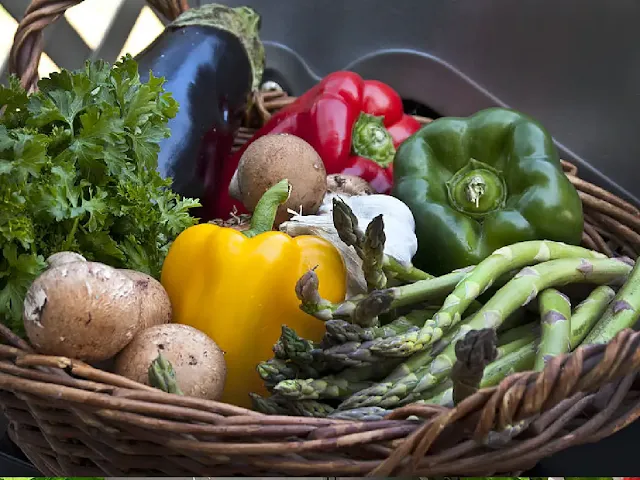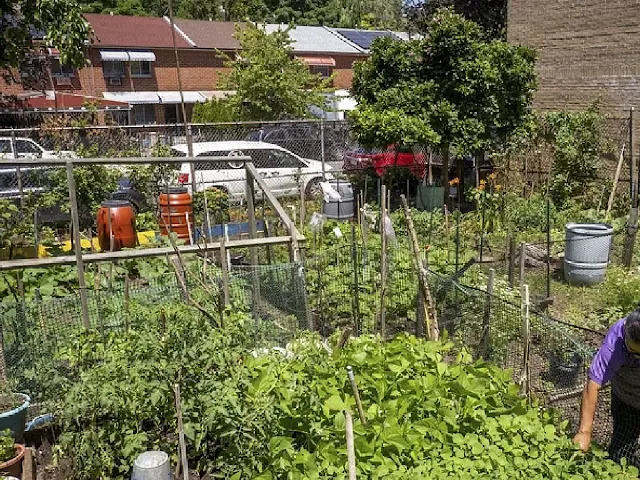 |
| Basket of urban farm food |
Food - Urban farming is a growing trend that has the potential to revolutionize the way you think about food. By growing your own food in an urban environment, you know what you eat, become independent and a giver, and also help reduce food waste, provide fresh, live food, and, at the end,promote sustainable living.
Remember That You Are What You Eat
 |
| DIY and grow own food |
Eating healthy can have a positive impact on our physical, emotional, and mental health (remember the four bodies: physical, emotional, mental, and spiritual, all connected). In fact, there is a strong link between nutrition and depression, the low vibrational state. A diet with highly processed foods low in nutrients doesn’t give our body much fuel to work with. But a nutrient-rich, whole-foods eating plan can help us continuously keep our cells working better and less susceptible to premature aging and disease.
Mind Not To Waste Gaia
Food waste is a major issue that has significant environmental impacts. According to the Food and Agriculture Organization of the United Nations, roughly one-third of all food produced in the world is lost or wasted each year (live statistic in https://www.theworldcounts.com). This has a number of negative consequences for the environment, including contributing to climate change and other environmental issues.
One of the biggest environmental impacts of food waste is its contribution to climate change. When food waste ends up in landfills, it decomposes and releases methane, a potent greenhouse gas that is much more damaging to the environment than carbon dioxide. In fact, food waste is responsible for roughly 8% of global greenhouse gas emissions in Gaia.
In addition to its impact on climate change, food waste also has other environmental consequences. For example, it can contribute to water pollution and other forms of environmental degradation. And when food is wasted, all of the resources that went into producing it, such as water, energy, and land, are also wasted.
Reducing food waste is an important step in addressing these environmental issues. There are a number of ways to reduce food waste, such as meal planning, proper food storage, and creative ways to use up leftovers. By taking these steps, you can help reduce the environmental impact of food waste and promote sustainable living.
How To Practice Avoiding Food Waste
This is an important issue that affects the environment and your existence on this planet, Gaia. Here are some tips on how to reduce food waste in your own home:
- Plan Your Meals: Meal planning is a great way to reduce food waste. By planning your meals in advance, you can buy only what you need and avoid buying too much food that will go to waste. You can also plan your meals around ingredients that you already have in your pantry or fridge.
- Proper Food Storage: Proper food storage is key to reducing food waste. Make sure to store your food in airtight containers to keep it fresh for longer. You can also freeze food that you won’t be able to eat before it goes bad.
- Creative Ways to Use Up Leftovers: Get creative with your leftovers! You can use leftover vegetables to make a soup or stir-fry, or use leftover meat to make a sandwich or salad. You can also freeze leftovers and save them for later.
Understanding Food Labels and Sharing With Others: Understanding food labels is important to avoid throwing away food that is still good. “Best before” dates indicate when food is at its best quality, but it is still safe to eat after that date. "Best Before" dates indicate when food is not safe to eat. This will also allow you to share. If you share immediately after harvest, it's even better to ensure all those in your space and surrounding area are fed. - Compost: Making compost as fertilizer is a great way to reduce food waste and create nutrient-rich soil. You can compost all natural stuf, including fruit and vegetable scraps, coffee grounds, and eggshells.
By following these tips, you can reduce food waste in your own home and help protect the environment. Remember, every little bit counts!
Finally, urban farming can promote sustainable living by reducing the carbon footprint of food production. By growing your own food, you can reduce the amount of energy and resources that are required to transport and store food. This can help reduce greenhouse gas emissions and other environmental impacts associated with food production.
The Future Await Us
Reducing food waste is an important issue that affects the environment and our wallets. According to the Food and Agriculture Organization of the United Nations, roughly one-third of all food produced in the world is lost or wasted each year. This has a number of negative consequences for the environment, including contributing to climate change and other environmental issues.
The good news is that technology and innovation are being used to reduce food waste and promote sustainable living. Here are some examples:
- Smart Fridges: Smart fridges are equipped with sensors that can detect when food is about to expire. They can then send alerts to your phone, reminding you to use the food before it goes bad.
- Food Sharing Apps: Food sharing apps like Too Good to Go and OLIO allow users to buy surplus food from restaurants and grocery stores at a discounted price. This helps reduce food waste and provides affordable food to people who might not be able to afford it otherwise.
- Smart Packaging: Smart packaging is being developed that can help keep food fresh for longer. For example, researchers at the University of Strathclyde have developed a plastic film that can help keep food fresh for up to a week longer.
- Food Waste Tracking: Companies like Winnow are using computer vision to help commercial kitchens understand how food is being wasted. This can help reduce food waste and save money for businesses.
- Vertical Farming: This is a method of growing crops in vertically stacked layers. This allows for more efficient use of space and resources and can help reduce food waste by providing fresh produce to urban areas.
These are just a few examples of how technology and innovation are being used to reduce food waste and promote sustainable living. As you move into the future, it’s likely that you’ll see even more exciting developments in this area.
Conclusion
Urban farming is a great way to secure what you eat, become independent, and be a food giver, while at the same time promoting sustainable living and reducing food waste. By growing your own food, you can help ensure that you always have fresh produce on hand, provide fresh produce to urban areas, and reduce the carbon footprint of food production. So why not give it a try and start your own urban farm today?
